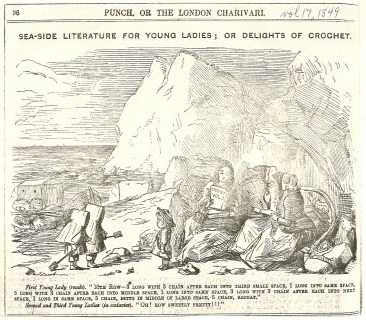
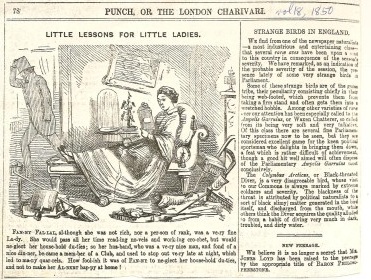 Punch Magazine (full title: Punch or The London Charivari) lampooned all aspects of politics and popular culture for almost 60 years.
Punch Magazine (full title: Punch or The London Charivari) lampooned all aspects of politics and popular culture for almost 60 years.
During the mid-1800s crochet was so popular that it was a frequent target for Punch's satire.
| Home | Textile History |

 Punch Magazine (full title: Punch or The London Charivari) lampooned all aspects of politics and popular culture for almost 60 years.
Punch Magazine (full title: Punch or The London Charivari) lampooned all aspects of politics and popular culture for almost 60 years.
During the mid-1800s crochet was so popular that it was a frequent target for Punch's satire.
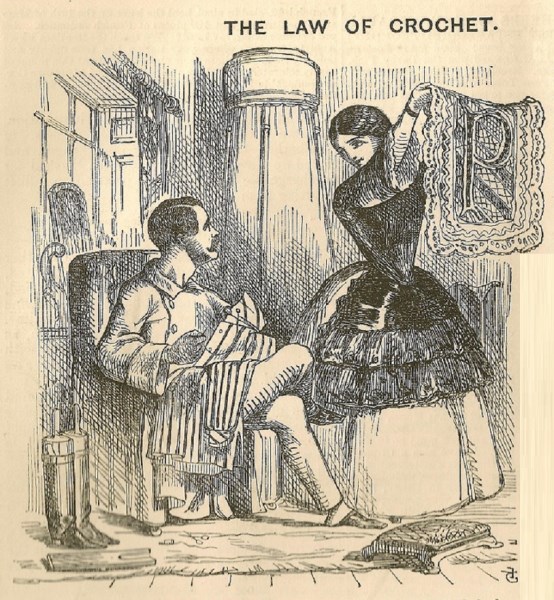 In May 1852 Punch magazine published the satirical and very chauvanistic "The Law of Crochet". For the complete text see my article published in September/October 2011.
PieceWork magazine. However I have provided a summary below with additional photos.
Click on thumbnail-pictures for larger images and additional explanations.
In May 1852 Punch magazine published the satirical and very chauvanistic "The Law of Crochet". For the complete text see my article published in September/October 2011.
PieceWork magazine. However I have provided a summary below with additional photos.
Click on thumbnail-pictures for larger images and additional explanations.
Clause 1: Limits crochet time to no more than 14 hours per day.
Clause 2: Being busy with Boar's Head (a brand of crochet thread made by Walter G. Evan's & Co. in Darley Abbey, Derbyshire) is an inadequate excuse for
a badly cooked calf's head (a favorite dish at the time and the main ingredient in mock turtle soup).
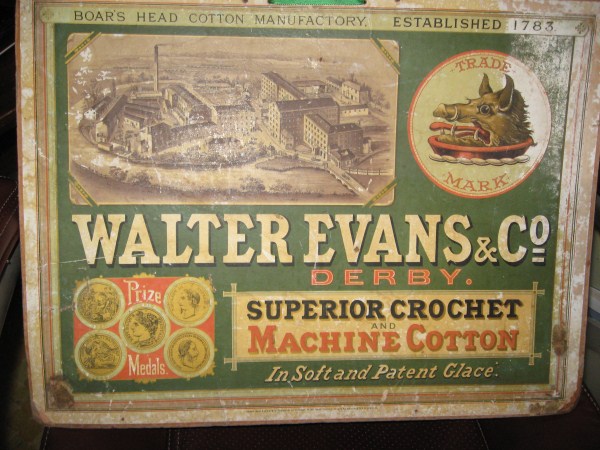
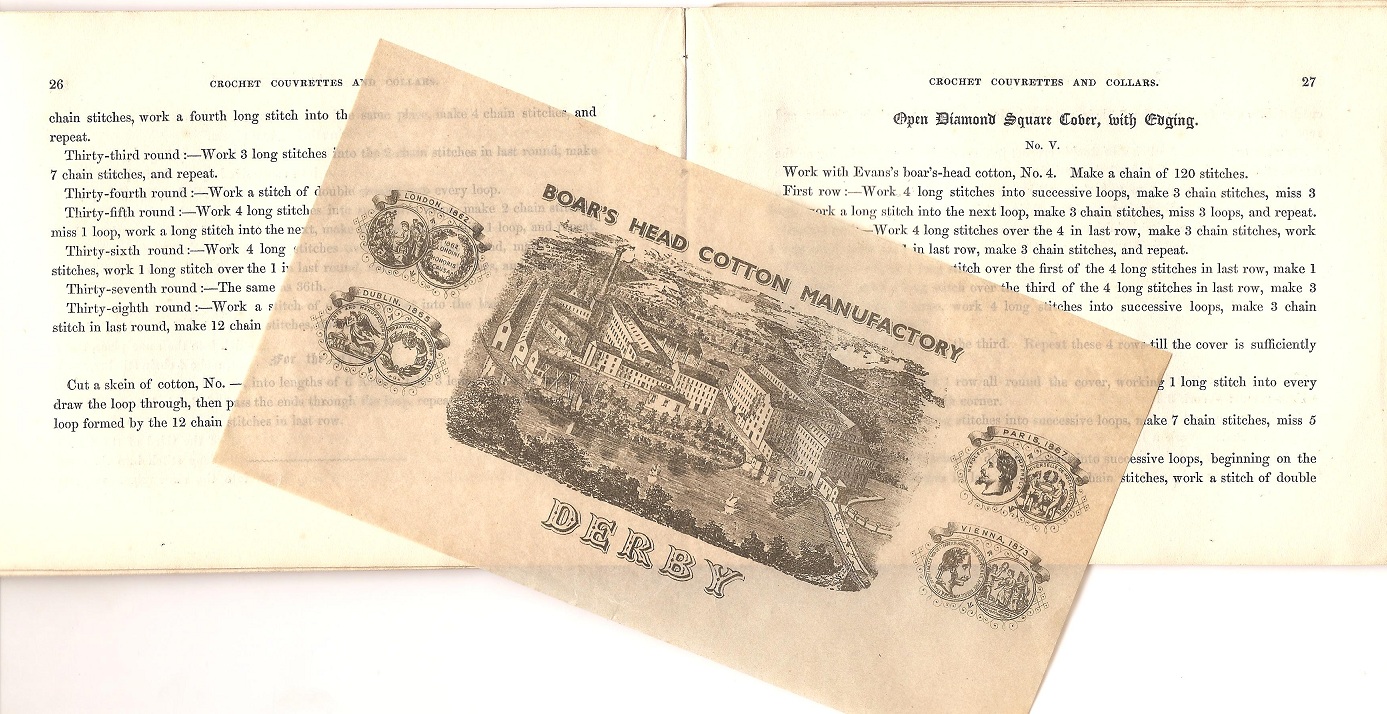

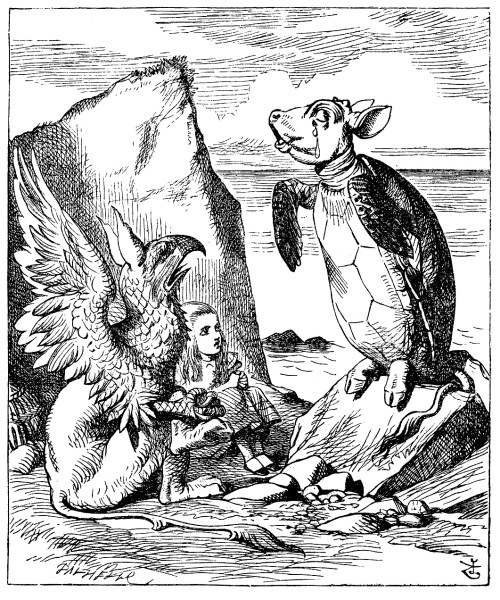
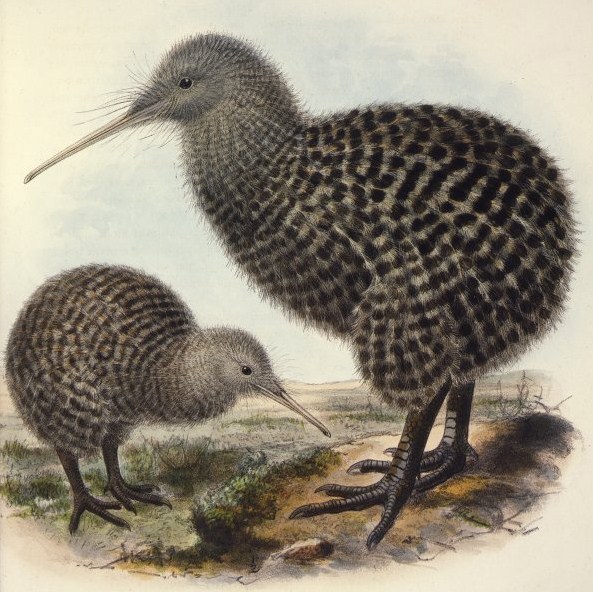 Clause 3: Excuses a husband's grumpiness when his wife pays too much attention to crocheting an "anti-macassar", so much that she
is unwilling to go to the zoo to see the the new Apteryx (Australia's Kiwi bird) or to pay adequate attention to her husband's jokes.
(Anti-macassars are now known as an "antimacassars", the term for a textile piece, usually crocheted,
that protects chair cushions from hair oils. The most popular hair oil of the time was Rowland's Macassar Oil.)
Clause 3: Excuses a husband's grumpiness when his wife pays too much attention to crocheting an "anti-macassar", so much that she
is unwilling to go to the zoo to see the the new Apteryx (Australia's Kiwi bird) or to pay adequate attention to her husband's jokes.
(Anti-macassars are now known as an "antimacassars", the term for a textile piece, usually crocheted,
that protects chair cushions from hair oils. The most popular hair oil of the time was Rowland's Macassar Oil.)
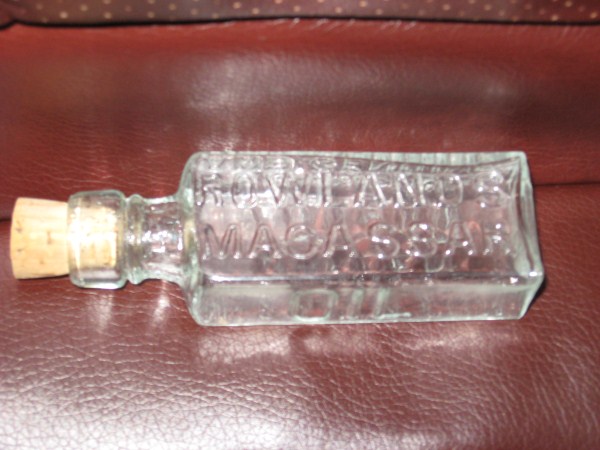
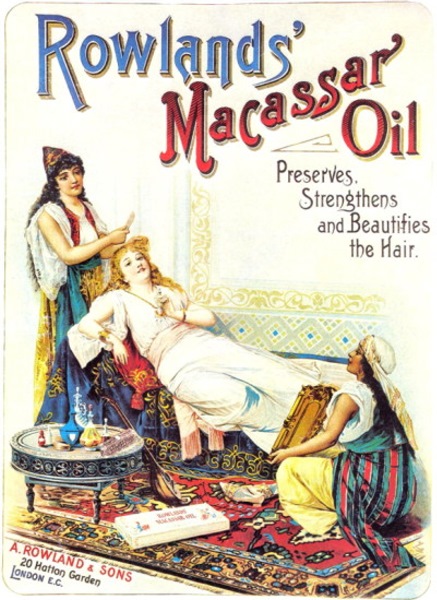
Clause 4: A wife's "unreasonable" attachment to crochet excuses the husband of all sorts of bad behavior, examples provided in the bill.
Clause 5: Places no limitations on the wife's late night darning or mending.
Clause 6: Gives the husband the last word on the interpretation of the law, without appeal.
Clause 7: Provides "remedy for all cases of Crochet Aggrevation".
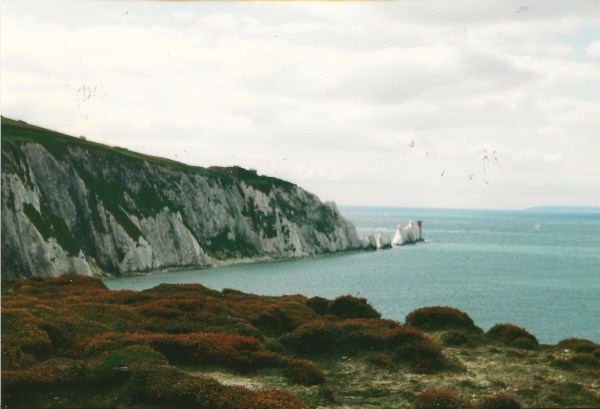
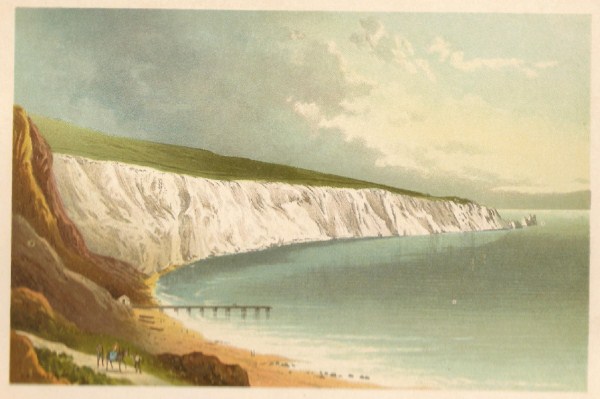
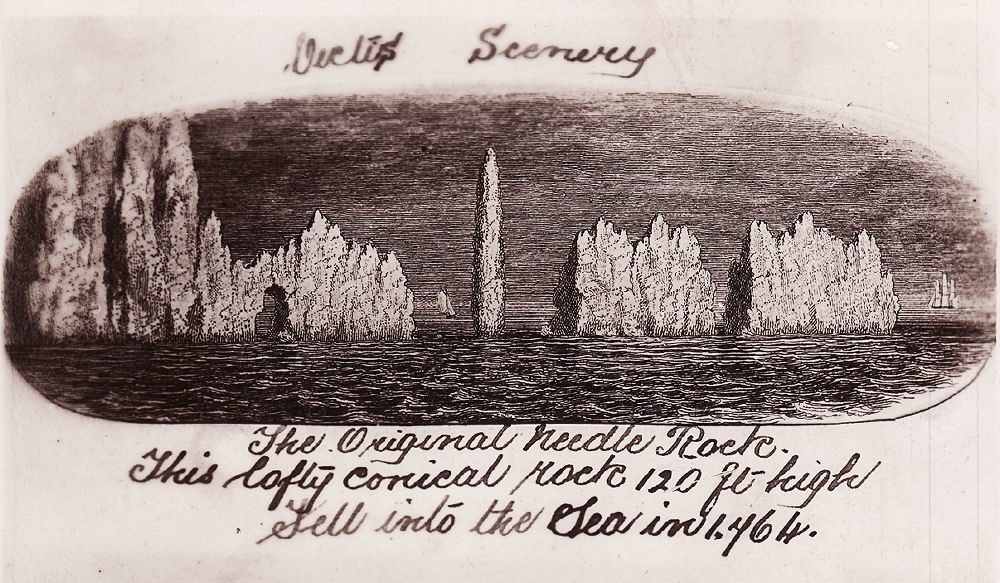 Clause 8: Obliges the husband to furnish his wife with alternate "amusement" such as copying, accounting, or editing duties.
Clause 8: Obliges the husband to furnish his wife with alternate "amusement" such as copying, accounting, or editing duties.
Clause 9: Empowers a husband to taunt a crotchety wife (a play on the word "crotchety", defined as irritable, quarelsonme, cantankerous, or grouchy;
see the below section on Lord Brougham for more comments on the word "crotchet").
For example, if she requests a holiday at the Isle of Wight (where the geologic formation, the Needles, are) she can be told she has had enough of the Needles.
Fine crochet hooks were often called "crochet needles" until the early 1900s.
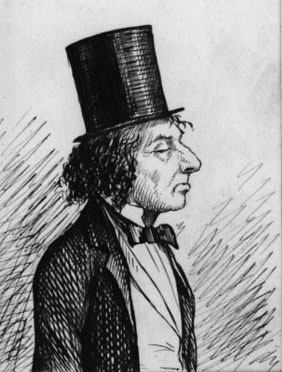
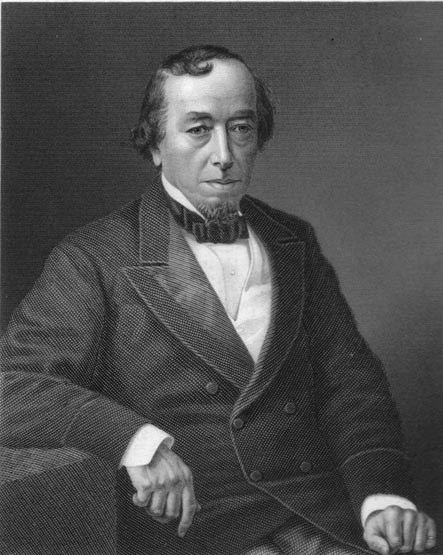 The article concludes recommending Disraeli, "because he really works very fairly - with a hook" (an antisemitic comment, based on an inaccurate stereotype about his Jewish heritage)
sponsor the bill in the House of Commons, and
The article concludes recommending Disraeli, "because he really works very fairly - with a hook" (an antisemitic comment, based on an inaccurate stereotype about his Jewish heritage)
sponsor the bill in the House of Commons, and
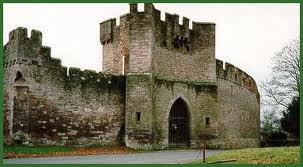
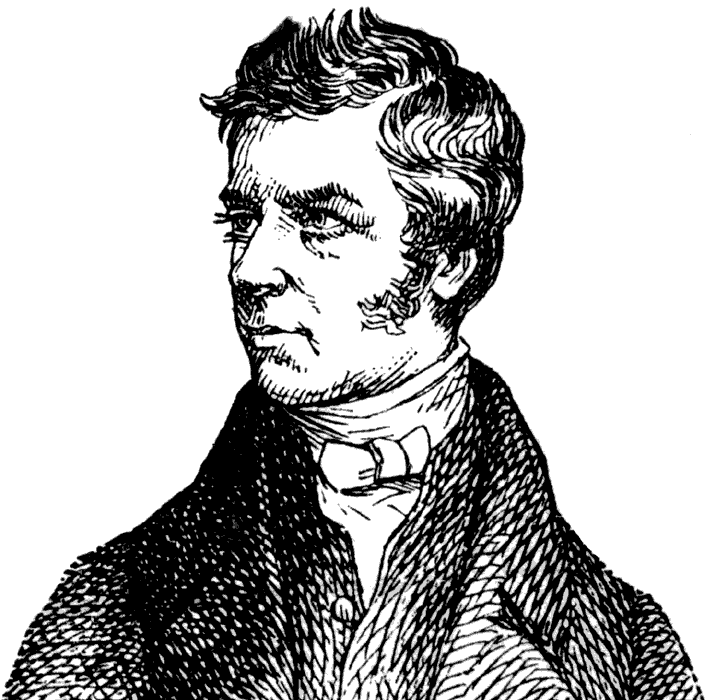 Lord Brougham "celebrated for his Crotchet-work" (ties to Thomas Love Peacock's book, Crotchet Castle) sponsor the bill in the House of Lords.
Lord Brougham "celebrated for his Crotchet-work" (ties to Thomas Love Peacock's book, Crotchet Castle) sponsor the bill in the House of Lords.
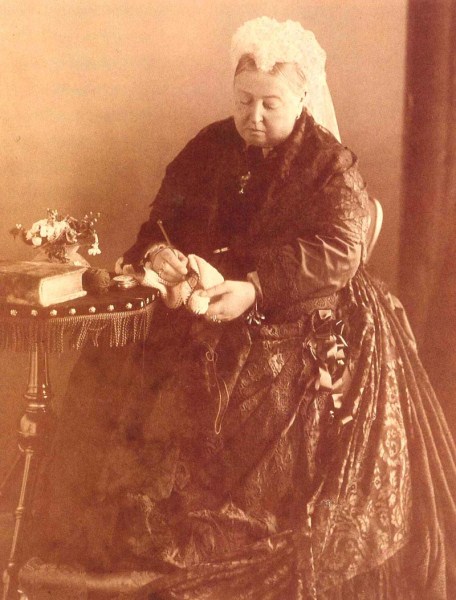 At the time of Punch's satire, crochet continued growing in popularity. Even Queen Victoria learned to crochet.
At the time of Punch's satire, crochet continued growing in popularity. Even Queen Victoria learned to crochet.
Picture, with gracious permission from Her Majesty, Queen Elizabeth II.